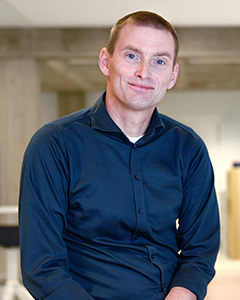Are you curious about the newest supply chain theories?
As a supply chain professional, you are undoubtedly confronted with new challenges every day, because there has been an enormous increase in possibilities for setting up processes more efficiently. Consider in this respect planning automation and the use of big data with forecasting. In order to adjust to the new reality and to make the right choices, it is essential to be informed of the most recent developments in the logistics profession.
New challenges: automation and big data
The questions at the center of operations and the supply chain remain the same – how do we predict demand? How much stocks should there be? How can the organization's structures be made more efficient? – but the solutions are constantly changing. The options for improving processes are now unlimited. The use of big data, 3D printing, the Internet of Things and blockchain mean a new era in the profession.
So it is no surprise that recently, the change processes in supply chain management are primarily about digitization. For instance, it has been shown that 70 to 80 percent of the planning activities in the supply chain can certainly be left to systems. In many cases, these do more than people can; the algorithms are smarter and the amount of data available is only growing. Data has become a discipline in its own right: whereas the history in particular used to be looked at to predict sales, now there are all sorts of new sources – consider Google and Facebook – that give relevant information about future sales.
Yet in a number of cases, people perform better with the planning than machines do. Which leads us to the ultimate question: when do we automate activities, and when do we retain people as planners? To find out, you have to experiment and measure. In this respect, it is important that a company's top management radiates confidence in relation to data and automation, otherwise it will all come to nothing on the shop floor. It is also essential that there are experimentation opportunities within the company; so that errors may be made. It simply takes time to implement new technologies as optimally as possible.
The latest theories and insights
All of this presents supply chain professionals with new challenges and choices. Because which new techniques will you or won't you apply in making the processes more efficient? Of course, a sufficient insight into the possibilities of automation and the smart use of data helps enormously. You obtain that insight by keeping yourself up to date with professional literature and by exchanging ideas with professional colleagues. If you want to further intensify bringing your knowledge of logistics to a higher level, it is also an option to follow a master. As academic director of the Master of Operations and Supply Chain at TIAS, I will be pleased to explain that.
Learning and directly applying in practice
The TIAS logistics master is educational because the theory is directly connected with concrete cases from practice. The lecturers are all connected with that practice. I myself am co-founder and senior consultant of the consultancy agency EyeOn, where I lead improvement projects in the field of forecasting and planning performance. Moreover, the participants of the master are managers or consultants with an average of ten years of experience in logistics or operations. That creates an inspiring environment where we discuss the profession at a high level. So besides knowledge, the master also involves a network; you get to know your professionals from various different branches and organizations both during the master and, as an alumnus, afterwards.
If you are ready to update your knowledge and want to expand your professionalism in the field of operations and supply chain management together with professional colleagues, then the TIAS master may be the solution.
Read more about this Master

Freek Aertsen
Freek Aertsen is co-founder of the company EyeOn and also academic director of the Executive Master of Operations and Supply Chain Excellence at TIAS, School for Business and Society.